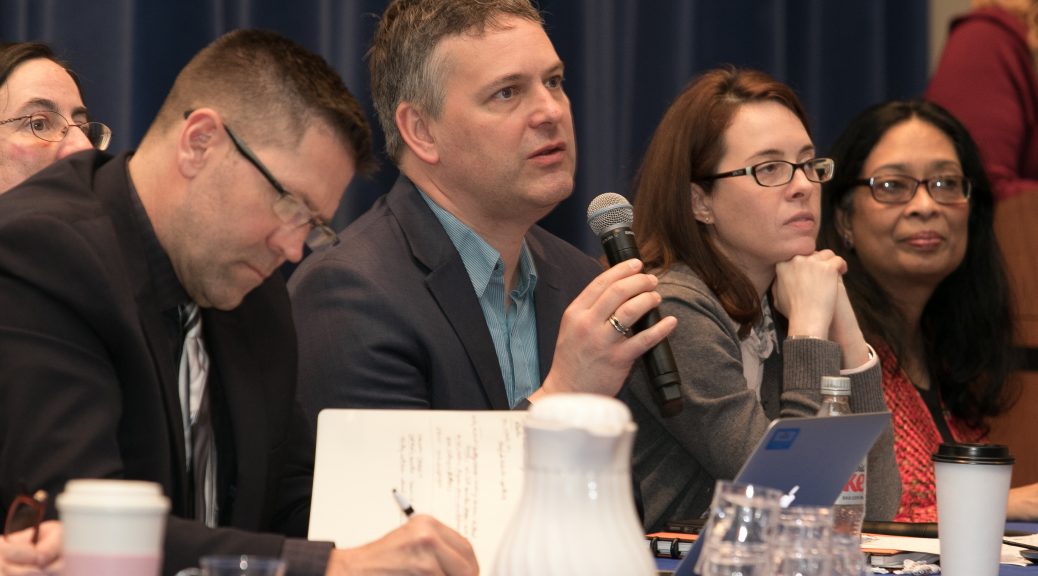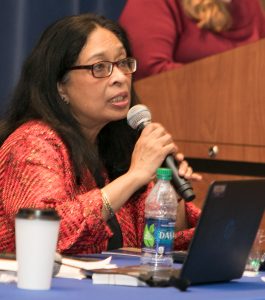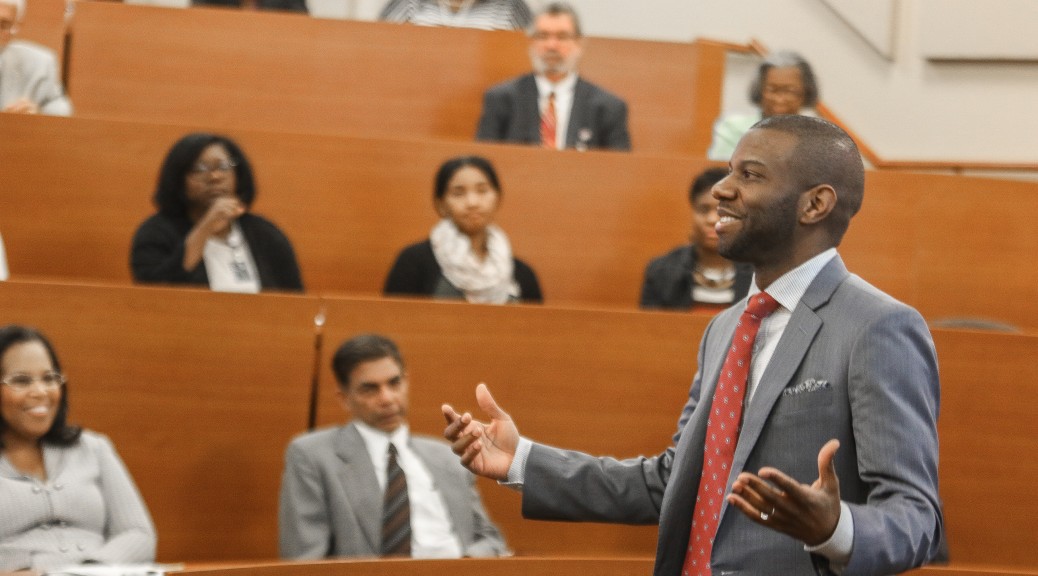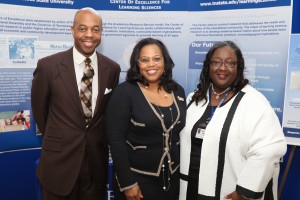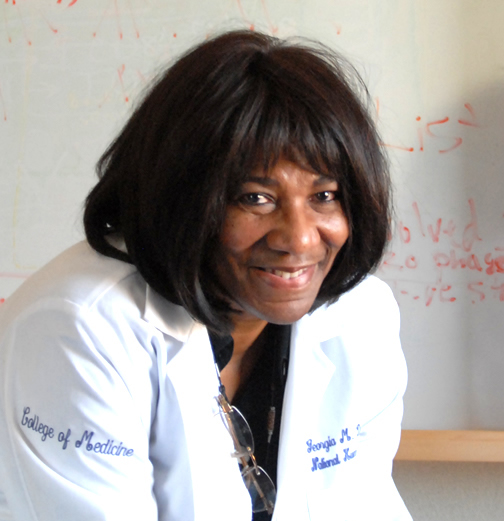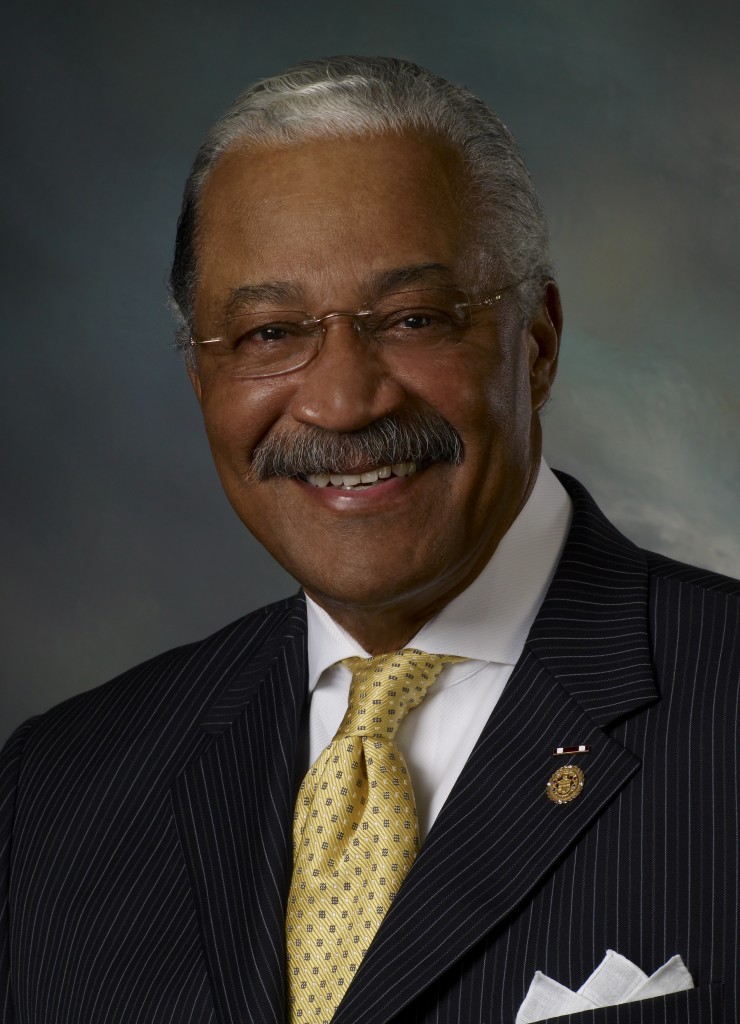NASHVILLE (TSU News Service) – Tennessee State University students and researchers will showcase their cutting-edge research projects and inventions at the 40th Annual University-Wide Research Symposium April 2 – 6.
The symposium, which is largely composed of presentations from the science, engineering, business and humanities disciplines, will allow students to gain exposure and experience as either oral or poster presenters in an evaluative environment with external judges from the Mid-South region.
Dr. Michael Ivy, TSU associate professor of Neuroscience, and John Barfield, TSU director of engagement and visibility in the Division of Research and Institutional Advancement, serve as the co chairs of this year’s symposium which will feature abstracts from 174 students and 40 faculty members.
Barfield said the symposium is important because it prepares students for future research opportunities.
“When our students go to graduate school, they can go research-ready being able to prove that they already know how to do research and that they have worked in a research environment,” he said. “If they are graduate level students about to work on their doctorate then they will be able to show that they have mastered the rigor of being able to present research at an academic level.”
The theme for this year’s symposium is “Establishing a Culture of Research Excellence.”
Oral presentations will take place throughout the week in the Research and Sponsored Programs Building, Room 009, 163 and 209. Poster presentations will take place in the Jane Elliot Hall Auditorium on Thursday, April 5.
Dr. Patrice L. Jackson-Ayotunde, associate professor of Medicinal Chemistry at the University of Maryland Eastern Shore School of Pharmacy, will provide the keynote address on Friday, April 6 at noon in the Ferrell-Westbrook Complex, Room 118.
Jackson-Ayotunde, who has mentored several graduate, professional and undergraduate students, does extensive research around the treatment of drug-resistant epilepsy. Her laboratory works closely with the Epilepsy Therapy Screening Program (ETSP) at the National Institute of Neurological Disorders and Stroke. Jackson was named Mentoring Institute for Neuroscience Diversity Scholar (MIND) for 2016-17 and the Emerging Scholar of 2015 by Diverse Issues in Higher Education.
Barfield said the symposium is open to the public. For more information about the 40th Annual University-Wide Research Symposium visit tnstate.edu/researchsymposium.
Department of Media Relations
Tennessee State University
3500 John Merritt Boulevard
Nashville, Tennessee 37209
615.963.5331
About Tennessee State University
With more than 8,000 students, Tennessee State University is Nashville’s only public university, and is a comprehensive, urban, co-educational, land-grant university offering 38 bachelor’s degree programs, 25 master’s degree programs and seven doctoral degrees. TSU has earned a top 20 ranking for Historically Black Colleges and Universities according to U.S. News and World Report, and rated as one of the top universities in the country by Washington Monthly for social mobility, research and community service. Founded in 1912, Tennessee State University celebrated 100 years in Nashville during 2012. Visit the University online at tnstate.edu.

